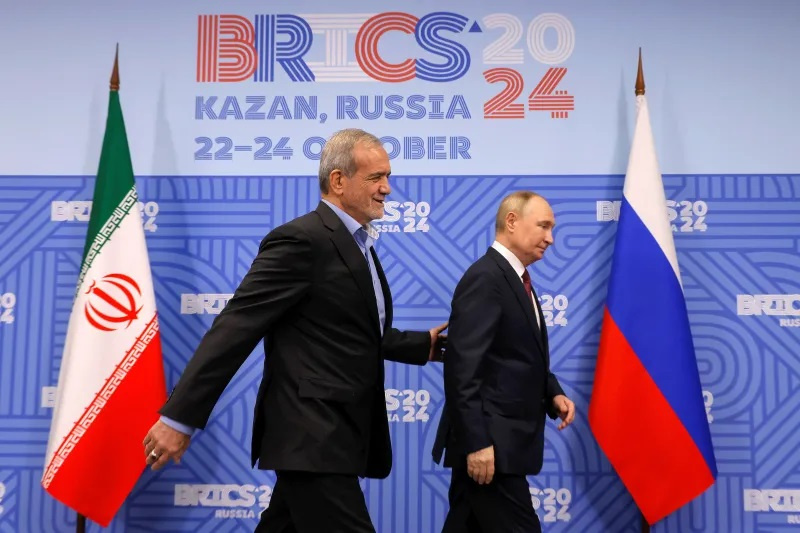Troubles in Iran's 'Look East' Strategy

As the dust of Syrian regime's sudden downfall in the hands of Turkish-backed terrorists begins to settle, there are still a great deal of unanswered questions begging for an answer, above all, why did the Syrian army refuse to fight and Assad's generals betray him? Equally important, why didn't the Russian protectorate power rush to defend Syria from the invading army? After Assad, can Iran trust Moscow, or should there be a healthy pause in Russia-Iran relations, instead of rushing toward a new level of strategic relationship between the two countries?
Clearly, these are serious, and troubling, questions from the prism of Iran's national interests, which dictate a clear understanding of what exactly happened in Syria last month, and its long-term implications for both Iran and the region.
Lest we forget, in October 2019 Russia despite the Syrian protest entered into the "Sochi agreement" with Turkey, agreeing to a "safe zone" for the Turkish-backed rebels, a Turkey-controlled security enclave on Syrian territory, and a firm pledge by Moscow to defend Syria's territorial integrity against any further encroachment inside Syria. Yet, the Kremlin bosses all but forgot about the terms of Sochi agreement, under the lame and patently questionable excuse that the Ukraine war had drained their military assets in Syria, thus excusing themselves from their prior commitments. Worse, they used another lame excuse, i.e., drone attacks on their base, to evacuate Syrian President Bashar al-Assad, who had naively gone there seeking Russian help, in light of Assad's first press conference from his Russian exile hinting at a Russian betrayal. Regarding the supposed "drone attacks" that had frightened the mighty Russian army so much as to force a country's president to depart despite his will, there is little empirical evidence to corroborate it.
Not only that, President Putin himself in his first press conference after the Syria debacle all but congratulated Israel as "the big winner" and, naturally, dismissed any suggestion of foul play on Moscow's part. In turn, Russia's behavior has raised alarm in Iran, with some former officials openly complaining that Russia is unreliable and has refused to assist with repairing the S-300 air defense damaged by the Israeli attack -- Russia's radars in Syria could have aided Iran to deter that attack but did not materialize either. Inevitably, the Iranian rumor mill has ignited the curiosity of a quid pro quo regarding the war in Ukraine, which is Mr. Putin's top priority. He is of course keen on preserving Russia's assets in the Middle East, which explains the possibility that the Russian bases in Syria might not close after all and, what is more, he can switch some military assets to Libya. Russia wielded a great deal of influence on the 'vanishing' Syrian army and its generals as well, lest we forget.
Consequently, until there is a clear and convincing explanation by Moscow regarding its strange behavior in Syria, the Iranian suspicion of a foul play, resulting in a major strategic setback for Iran's geopolitical interests in the region, will continue to linger, to the detriment of a healthy bilateral relations between Iran and Russia. All the recent unsavory developments above-mentioned require, in turn, a fresh rethinking of the "look East" strategy in favor of a return to the revolutionary elan of 'neither west, nor east'. Certainly, Iran can stand on its own and needs only to decouple itself from the Arab-Israeli conflict in order to de-escalate tensions and to protect its vital national security interests. This means that at this stage entering into a closer, i.e., strategic, relations with Russia is a 'road better not taken'.
(Read more on Sochi agreement here, where the author criticized Russia's "overreach" and warned of Putin's 'Faustian bargain' by writing: "Putin has entered into a Faustian bargain that could damage Russia’s relations with both Damascus and Tehran. Somehow, Putin’s government assumes it can support Turkey overtaking a large chunk of Syrian territory for an indefinite period, while simultaneously pretending to be a great defender of Syria’s territorial integrity.")

